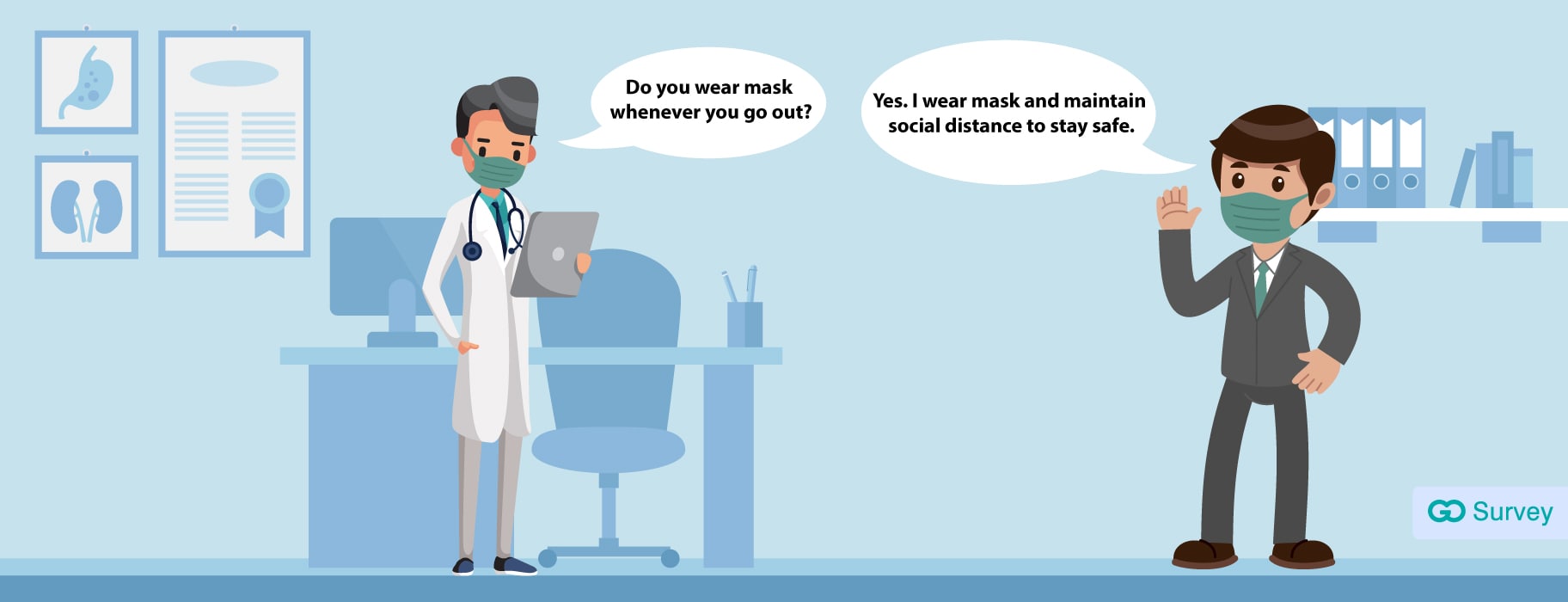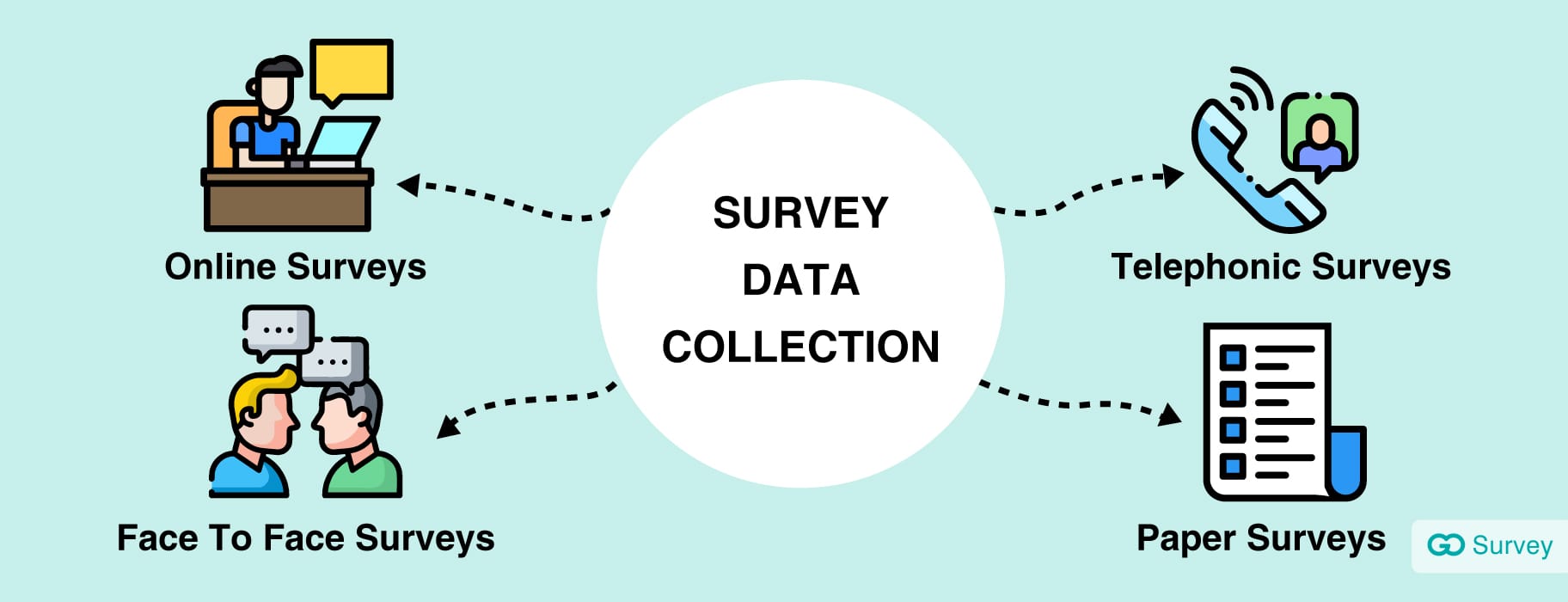The past few months of the Covid-19 outbreak have had a very dynamic impact across the globe.
The operational and research teams are trying to calculate its overall influence on human behavior, mental and physical preparedness, their cascading effect on the market and economy, which help us with actionable plans for the same.
This has set up a massive call for mobile-based surveys.
The unmatched scale...
Although the scale of the outbreak is unique and unmatched in centuries— we have a fair share of past-experiences in reading the footprints and repercussions of Ebola and Nipah virus eruptions through rapid response mobile surveys.
Online mobile surveys played a significant role in researching the flared up areas under those circumstances.
Since Ebola and Nipah viruses were limited to specific geographies— thus the impact was much lower and was confined to a few countries.
But the intensity of the CoronaVirus outbreak has pushed the need for offline mobile surveys too as it goes wild in the regions which don't have the internet connections.
The impact of mobile-based surveys on CoronaVirus Outbreak
Having said that— organizations are deploying all the resources they have for impact reading— whether online or offline.
Here's how mobile-based surveys are touching various semantics of the world in the current pandemic.
#1 Surveys for behavioral insight
The fear of outbreak has changed the way humans are interacting with each other. While some places are emphasizing on social distancing, some have different risk perceptions.
Since the pandemic outbreak has put an overwhelming burden on authorities and health systems— the government organizations are conducting mass-surveys at root-level zones to respond with appropriate interventions, plans, and messages.
The surveys are empowering the government to get insight into adverse behaviors like hoarding and discriminations, and personal practices like necessary preventative measures.
Based on personal and social behaviors— authorities are regulating the local laws to minimize the wrath of Corona and socially-constructed problems.
#2 Surveys for community readiness
The pandemic is a unique instance for every individual and community on the whole. Despite that, there's an inequality in the readiness for facing the consequences of the disease.
Some communities are well-equipped with knowledge, essentials, wealth, etc. to combat the situation while others' aren't.
The local authorities are conducting surveys to understand community readiness so that they can come up with awareness, timely intervention, and essential supplies in the right demographics to lower down the non-corona-based mortality rates.
Mobile-based surveys help with the crucial crux on stratified findings and identifying self-efficacy of the particular community.
#3 Surveys on national preparedness
National preparedness is different from community preparedness. It's a superset of community readiness.
The local authorities are conducting local response surveys to report data to the central authorities, who, in turn, are analyzing these details for the proper fund and resource allocations nation-wide.
Once the authorities have taken the necessary steps such as national shut-down— the local bodies are asked to survey the implications of restrictive policies.
It ultimately gives more insight into the warning signs that force the government to change its policies and decisions.
#4 Surveys on impact assessment
Impact assessment survey is the survey that's used by nearly all the organizations— private or public.
Private organizations are looking closely at the impact of the pandemic on their businesses, customers, and workforce.
In contrast, the public impact assessment is giving in-depth research on local and national economic strata.
Both the pieces of information are allowing these organizations to get access to their private or national-treasury loss, and driving them to adapt optimized policies which could mean minimum losses and maximum benefits to everyone linked in the chain.
After the organization has deployed the optimized policies— they again assess the transition phase by impact and perception surveys.
It allows them to foresee the perceptions and reactions of the people linked with the organization, which eventually lets them make more informed decisions during the next transition phase.
#5 Surveys on symptom tracking
Although the novel CoronaVirus has been quite a dicey pathogen with varying symptoms across different time-zones— the healthcare professionals are finally on a consensus for specific "collective symptoms."
The local district authorities are tracking symptoms through online and offline survey apps so that they can plan the curbing moves on that particular spot.
The ones with the probable symptoms are either suggested to self-quarantine until the severity rises or are given immediate medical attention like isolation and treatment to prevent the spreading of the virus.
Moreover, the symptom tracking survey is helping the authorities to determine the percentage of "self-treated patients" and the overall threat to particular age groups and genders.
#6 Surveys on the knowledge of the health workers
The fact that COVID-19 is so unique and devastating at the same time— the knowledge of the health industry is tested big time.
While we have no vaccines yet, some of the medical institutes have given positive results in treating patients, while others have failed big time in even preventing their backyards.
Apart from the community and national preparedness— the agencies are conducting surveys to get a view on the knowledge of health staff to deal with the pandemic.
The unprepared health institutes and clinics are trained with both necessary and sophisticated means of treating tactics.
They are also schooled self-preventative measures while addressing patients.
The authorities are also monitoring the available resources consistent with the healthcare industry and keeping their supplies regularly checked to balance the supply and demand of medical products and kits in the crisis.
#7 Surveys on spending habits of the customers
Businesses are keeping a birds-eye view on the spending habits of the customers as the pandemic has changed the way they buy and spend money.
From shop only spending, the intensity of the disease has forced people to go for online spending.
Organizations are collecting data on consumer behavior, their digital perspective pre and post-corona, and their future plans of engagement.
Surveys have proved that even the conservatives who didn't like online transactions have been able to complete successful purchases.
The seismic shift in digital interaction with the online shops and services rings a future-bell for enterprises to further their digital agenda to make their businesses more profitable and customer-centric post-pandemic.
#8 Surveys on enterprise operations
Enterprises are facing financial challenges amidst the restrictive government's policies. Surveys on enterprise operations are giving them key insights on several facets of the businesses.
Mobile surveys are allowing them the details of current and future projection of the business, the behavior of work-from-home employee support, and their assessment and testing.
It also gives ideas about compensation and incentivization while enterprises devise distribution processes.
The ones with more losses are running surveys within the organization for labor cost reductions.
Companies are also reading the behavioral patterns of their workforce during self-quarantine so that they get to adapt to an entirely new digital work culture if needed in the future.
By doing so, companies can reduce office expenses and overhead costs by practicing voluntary "work-from-home months" or even years after everything comes back to normal.
#9 Surveys for identifying systemic deficiencies
The places which have systemic and process-related deficiencies are worst-hit by the rarity of CoronaVirus outbreak.
The lack of such a system demands more authoritative attention.
For addressing the missing system or vulnerability in the system— the efficient governments are surveying these regions so that they get help when needed.
To capture these trends— the authorities are collaborating with private healthcare /businesses and motivating them to come useful to their localities.
#10 Surveys for resilience and conspiracies
Corona is not just a pandemic. It has also led to info-demic where fake news, narratives, and conspiracy theories are peddled in the communities in the thirst of fear-mongering.
Infodemic has led to panic attacks, stress, anxiety, and weakened men's ability to respond to the outbreak sensibly.
The surveys which are set-up for checking the awareness also delve into the perception related to coping with such stress and recovering.
The authorities are trying to figure out the mental health implications concerning the knowledge of the community.
And that's ultimately letting them launch awareness and educational programs for modifying the risk perception.
The transparent information of the pandemic empowers the government to deal with the situations that may go out of control.
List of a few more mobile survey roles.
Here's the list of a few more ways by which mobile surveys are helping us to cope-up with Corona terror.
- It helps in developing a "comparative analysis" of the pandemic knowledge and readiness across the nation or organization.
- It spotlights the "priorities and constraints" of the pandemic risk, knowledge, preparedness, self-efficacy, and behavior.
- It highlights the "enabling factors" for essentials, healthcare, logistics, food supply, and institutional preparedness.
- It captures "negative trends," which are the results of restrictive decisions.
- It identifies the vulnerabilities in the region and gives insight into classical roadmap identification.
Packing up...
The outbreak is all set to divide our calendars— Before Corona (BC) and After Corona (AC).
It's the first time in the history of civilizations that we have the might of technology to assess every move that Corona makes on our systems.
Until we get back to square one— let's assess all the possible details to make data-driven decisions and fight the global epidemic with informed action plans and spread the right and responsible words among our communities.









